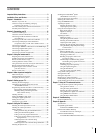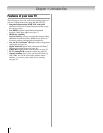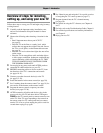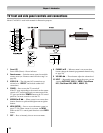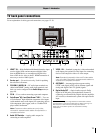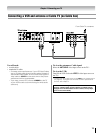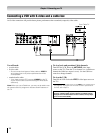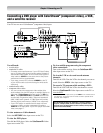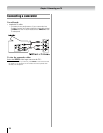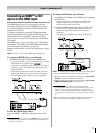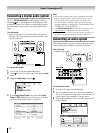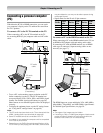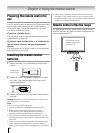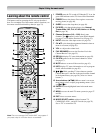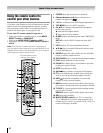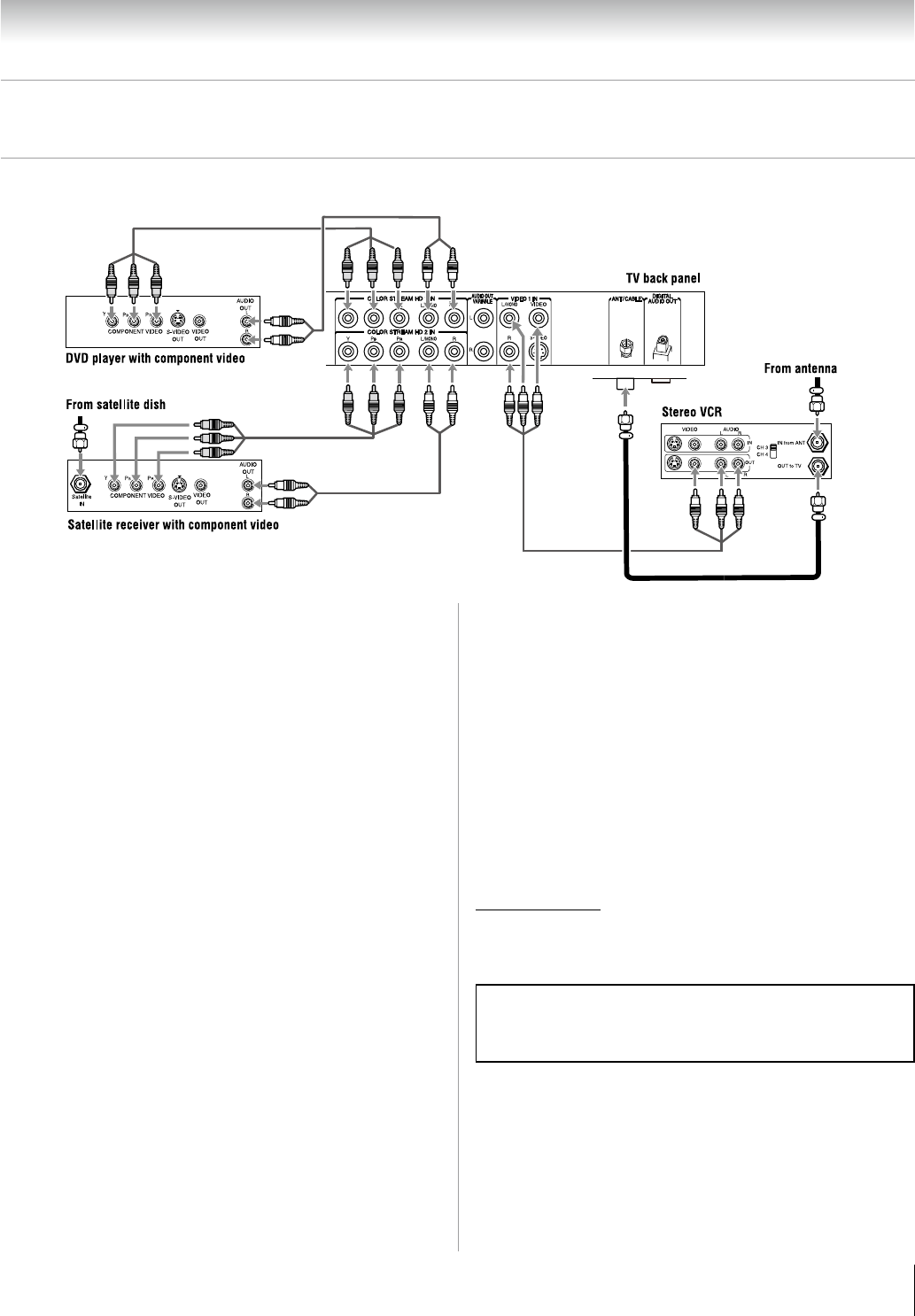
Chapter 2: Connecting your TV
1
Connecting a DVD player with ColorStream
®
(component video), a VCR,
and a satellite receiver
Your TV has two sets of ColorStream
®
(component video) inputs.
You will need:
coaxial cables
standard A/V cables
For better picture performance, if your VCR has S-video,
use an S-video cable (plus the audio cables) instead of
the standard video cable. Do not connect both types of
video cable to VIDEO 1 at the same time or the picture
performance will be unacceptable.
If you have a mono VCR, connect L/MONO on the TV
to your VCR’s audio out terminal using the white audio
cable only.
standard audio cables
component video cables
You can connect the component video cables (plus
audio cables) from the DVD player or satellite receiver to
either set of ColorStream terminals on the TV (HD-1 or
HD-2). The ColorStream HD-1 and HD-2 terminals can
be used with Progressive (480p, 720p) and Interlaced
(480i, 1080i) scan systems. A 1080i signal will provide
the best picture performance (1080p is not supported).
If your DVD player or satellite receiver does not have
component video, connect a standard A/V cable to
VIDEO 2 on the side panel. If your DVD player has HDMI
video, see page 17.
To view antenna or Cable channels:
Select the ANT/CABLE video input source on the TV.*
To view the DVD player:
Turn ON the DVD player. Select the ColorStream HD-1 video
input source on the TV.*
•
•
−
−
•
•
−
−
To view satellite programs using the component
video connections:
Turn on the satellite receiver. Select the ColorStream HD-2
video input source on the TV.*
To view the VCR or view and record antenna
channels:
Turn ON the VCR. Tune the VCR to the channel you want to
watch. Select the VIDEO 1 video input source on the TV.*
To record a TV program while watching a DVD:
Turn ON the VCR. Tune the VCR to the channel to record.
Select the ColorStream HD-1 video input source on the TV* to
view the DVD.
To select the video input source, press INPUT on the remote control
( page 21). To program the TV remote control to operate other
devices, see Chapter 3.
The unauthorized recording, use, distribution, or revision of television
programs, videotapes, DVDs, and other materials is prohibited under the
Copyright Laws of the United States and other countries, and may subject
you to civil and criminal liability.
*



